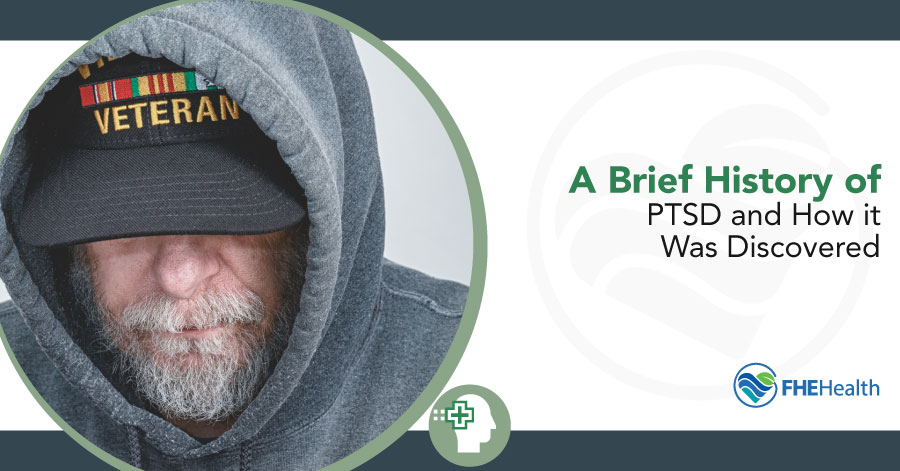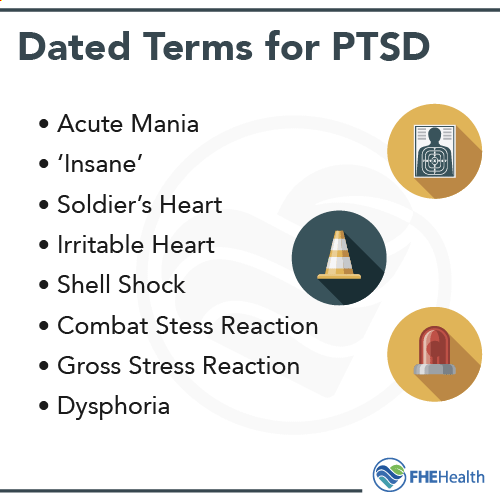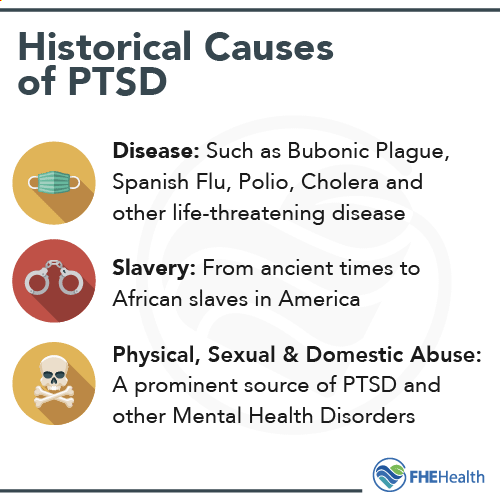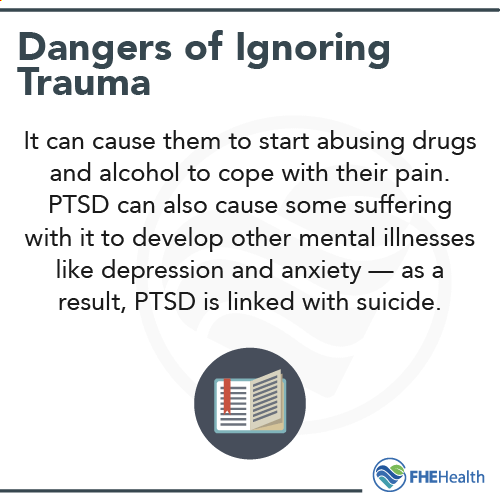
We generally think of post-traumatic stress disorder (PTSD) as a modern affliction, but why is this? Despite changes in technology, science and our understanding of certain medical issues, the human condition has been largely the same since the beginning of time. Presumably, we can find out some information about the history behind PTSD. After all, isn’t it reasonable that our ancestors would have suffered from PTSD at least the same amount if not more due to the more common hardships of the past?
Historians tend to agree. In 2015, Smithsonian Magazine published a story about John Hildt, a Civil War soldier whose arm was shattered by musket fire during a pivotal battle in Virginia. After he received treatment for his lost limb, he was sent to an asylum with a case of “acute mania.”
Medical records on cases like this are common, but these crude early diagnoses only hint at what patients were experiencing. Based on our understanding of what PTSD is, though, it certainly seems reasonable that these causes were caused by trauma, largely in the same way that PTSD develops today.
What Did We Call PTSD the Past?

Hildt’s case was called “acute mania,” which is most likely a blanket term to describe patients who were sent to an asylum because they were deemed “insane.” The soldiers of the time — not unlike members of the military today — were instilled with the pressure to be tough and “manly.” Mental illness was frowned upon because it gave the impression that those who suffered from it were weak.
There are records from Civil War times recounting soldiers who suffered from shortness of breath and tightness in their chest, symptoms that sound a lot like acute panic attacks and manifestations of PTSD in today’s terms. Rather than look at these as symptoms of psychological disorders, however, the clinicians of old called the condition “soldier’s heart” or “irritable heart,” pinning the causes on “tight knapsack straps.”
Shell Shock
Once World War I began, military technology had advanced to some degree. Explosives and artillery were more common, and examples of PTSD were called “shell shock.” In this conflict and World War II, “gas hysteria” was used to describe soldiers who had been driven mad by the fear of poison gas attacks. Later, it would be called “soldier’s fatigue” and “Combat Stress Reaction” (CSR).
These aren’t the only depictions of PTSD as it relates to war history. One review of texts on the subject found clinical mentions of neuroses that seemed to have been prompted by the battlefield as far back as the French Revolution in the late 1700s. Personal anecdotes from a soldier in the Hundred Years War in the 14th century described how he would sleep in a separate room from his wife and children because of hallucinations he would have in the night.
Historical Mentions of PTSD Off the Battlefield
Early instances of PTSD were not solely limited to combat, however. The 1952 DSM-1 includes some conception of PTSD as a “gross stress reaction.” In 1979, relief workers charged with cleaning up the aftermath at Jonestown — the death of 909 cult members as a mass suicide organized by leader Jim Jones — in Guyana observed PTSD-like symptoms. Clinical reports from the time described them as “dysphoria.”
Exploring the History Behind PTSD

There’s plenty of evidence to suggest that PTSD is nothing new — in fact, there’s nothing that refutes the idea that the condition has been with us since the dawn of man. The earliest humans likely faced trauma brought on by food insecurity and threats of violence from neighboring civilizations and animals.
Here are some other, non-war factors that may have contributed to PTSD and intense stress reactions in history:
- Disease: It’s more than likely historical pandemics like the bubonic plague and the Spanish flu caused PTSD in some people. Even as recently as the early 20th century, polio, cholera and other chronic and deadly diseases caused great fear, loss and, ultimately, life-changing trauma.
- Slavery: From the Jewish slaves in Ancient Egypt to the African slaves in modern America, forced labor was — and likely still is — a source of trauma.
- Physical, Sexual and Domestic Abuse: A prominent source of PTSD and other mental health disorders today, abuse is not a 20th-century invention. Records of different types of abuse and mistreatment date back to some of the earliest written records.
The Damage Caused by Ignoring Trauma and Its Effects
In a perfect world, we would approach PTSD at the source and provide comprehensive support for people who undergo trauma. Today, at least, we understand what PTSD is and have some effective methods of treating it.
 In the past, the disease was little understood and the consequences were dire. Take John Hildt, the Civil War soldier from the beginning of this piece. He spent from 1862 to 1911 in an asylum, where he died. The lack of medical understanding about the circumstances that made him the way he was after the war caused the treatment community to chalk him up as unstable, and the lack of treatment did nothing to help him recover.
In the past, the disease was little understood and the consequences were dire. Take John Hildt, the Civil War soldier from the beginning of this piece. He spent from 1862 to 1911 in an asylum, where he died. The lack of medical understanding about the circumstances that made him the way he was after the war caused the treatment community to chalk him up as unstable, and the lack of treatment did nothing to help him recover.
Given that people in history with PTSD didn’t have access to the right methods of treatment, we can use known consequences of the condition to speculate as to what might have happened to these people. PTSD causes people to isolate themselves from their loved ones. It causes them to start abusing drugs and alcohol to cope with their pain. These factors increase the likelihood of becoming homeless. PTSD can also cause some suffering with it to develop other mental illnesses like depression and anxiety — as a result, PTSD is linked with suicide.
This likely reality of historical PTSD cases is an unfortunate one. Without proper understanding and treatment, victims of trauma probably faced a much higher risk for a range of health problems, affecting their lives in a multitude of ways.
Reducing the Stigma on PTSD Means Understanding It
So, when did we start acknowledging PTSD for what it is instead of treating it as a defect brought on in weak men by battle or as symptom of a person who is unfit to fight? And why did this change occur over time? The answer is relatively simple.
Over time, we began to better understand the mechanisms at work in mental health conditions. Society began to realize that anyone can be affected by depression, anxiety, PTSD or any other condition. This coincided with a better system of studying the positive effects and the risks of certain treatments, developing a knowledge base of effective treatment for mental health disorders.
Today, we’re definitely getting to the point where PTSD is widely understood and accepted — hopefully, the trend in both of these areas continues. With that in mind, though, treatment is more available than ever before. At FHE Health, we’re here to help. Contact us today to learn about your options if you’re suffering from PTSD.






